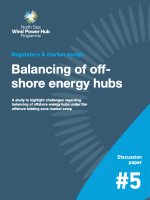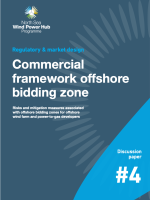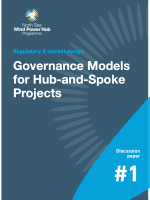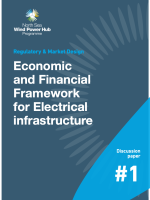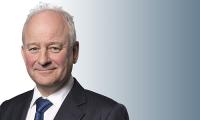
Former ambassador Henk Swarttouw on the challenges of international cooperation
Having worked as ambassador for the Netherlands in Denmark and Finland, Henk Swarttouw knows the particularities of the North Sea countries. In the very early stages of the NSWPH programme, he discussed this plan with the Danish ministry of Energy and with Energinet. Swarttouw shares his view on the North Sea Wind Power Hub programme and the challenges in international collaboration.
In your experience, what are focal points in cooperation of North Sea countries?
“In general, you have to involve every stakeholder from early on, so that they all will develop a sense of ownership of the project. In my view it would be preferable if also Norway and the UK would participate in the NSWPH programme, but with the Brexit process still not concluded, getting the UK on board will pose an extra challenge. When it comes to Germany, Denmark and The Netherlands, there are always national aspects to take into account. A very practical example is that our electoral cycles do not run synchronously. Our countries have elections in different years.
Political cultures differ as well. In Denmark, they have a smart way to ensure that long-term projects will not suffer from changes of government. With policies that involve long term investments, such as the NSWPH, the current government would involve the opposition to develop the plans together and to co-sign them. I think that is a good practice, which reassures investors and stakeholders that the goalposts will not be moved. This political tradition benefits the progress of long-term international plans. It’s a best practice for other countries to learn from.”
When it comes to particularities, are there significant cultural differences the consortium should take into account?
“Well, yes, of course. In the Netherlands, we don’t find it strange to create an artificial island, because it is a well-known technology in which Dutch companies have a lot of experience. To other countries, creating a new island may sound outlandish. In Denmark, wind parks on land are a common sight, which is not the case in the Netherlands.
We have the technology, but we need momentum and political will. I think most people agree that the NSWPH is the most realistic solution to achieve our ambitious climate goals.
Relative to its size, Denmark is the largest wind energy producer in the world. Already now, on good windy days, Danish wind farms have overproduction, that can be distributed to the Netherlands, Germany and Sweden. So even if there wouldn’t be a NSWPH programme, interconnectors for these countries, such as the COBRAcable, remain important.”
In your opinion, what does it take to make the NSWPH programme a success?
“We have the technology, but we need momentum and political will. I think most people agree that the NSWPH is the most realistic solution to achieve our ambitious climate goals. We need political momentum in the North Sea countries, preferably at the same time, to realise our sustainability ambitions.
We should strive for all the countries involved to act together; it needs to be a joint effort. It seems quite a challenge and there will be many distractions, but I am confident it can be done.”
